News
Misconduct: NBA backs Senate over sacking of CCT chair
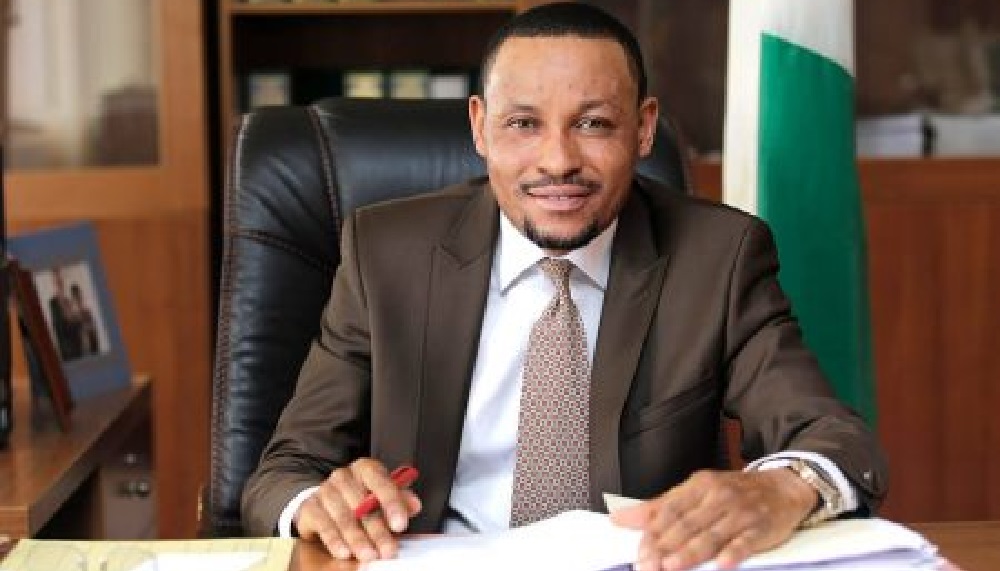
The Senate on Wednesday removed Danladi Umar as the Chairman of the Code of Conduct Bureau, citing gross misconduct in office.
Reacting to the development, the Nigerian Bar Association and Chief Adegboyega Awolomo (SAN), counsel for ex-Chief Justice of Nigeria, Walter Onnoghen, which Umar sacked in 2019, said the Senate’s decision could not be faulted.
Speaking to The PUNCH, the NBA President, Afam Osigwe (SAN), said, “The Constitution says that the chairman of the Code of Conduct Tribunal can be removed by the two-thirds of the Senate, so if the Senate has passed through this process and the President accepts it, then they will remove him. If the constitutional provision for his removal is being followed, then that is okay. It means that the initial announcement that the President removed him is not correct, that the President is now following the constitutionally stipulated procedure for his removal.
“Since the Senate has removed him, that means they have evidence which maybe they considered in their close session to recommend his removal. So, the moment the constitutionally stipulated procedure is being followed one may not be able to question it.”
Also commenting, counsel for Justice Onnoghen, Awomolo, said, “I leave him (Umar) to God and his conscience. May the Lord forgive him.”
The Senate’s decision sacking Umar was made pursuant to Section 157(1) of the Constitution of the Federal Republic of Nigeria (1999, as amended), which empowers the Senate to remove key public officials following due process.
The sacking followed a closed-door session lasting over one and a half hours.
Upon resumption of plenary, the Senate announced that more than 84 lawmakers supported the decision.
The motion leading to Umar’s removal was sponsored by the Senate Leader, Opeyemi Bamidele, who highlighted the pivotal role of the Code of Conduct Tribunal in maintaining high standards of morality and accountability in government.
Bamidele stated, “The Code of Conduct Tribunal, as a statutory institution, is expected to uphold virtues of integrity, probity, and accountability.
“However, Mr. Yakubu Danladi Umar’s conduct has fallen short of these requisite standards for a public officer entrusted with such responsibilities.”
He added that a statutory institution of such magnitude was expected to epitomise moral rectitude and “should be seen to uphold the virtues of integrity, probity, and accountability.”
“However, the conduct of M Yakubu Panladi Umar, who is the chairman of the tribunal, has fallen short of the requisite standard of a public officer to conduct the affairs of such tribunal.”
He added, “The Senate has been inundated with a series of petitions and allegations of corruption/misconduct against the chairman, a situation that necessitated the 9th Senate, through the Senate Committee on Ethics Code of Conduct and Public Petitions, to invite him to a series of its investigative hearings in order to unravel the circumstances surrounding those allegations.
“However, he appeared before the committee only once and thereafter avoided subsequent invitations.”
The Senate Leader added that the Senate was also concerned “about his (Umar’s) alleged absenteeism from office far more than one month, without permission and recuse to his position, coupled with preponderance of corruption allegation, misappropriation, and physical street brawl with a security man in the FCT vis-à-vis his current investigation by the EFCC, ICPC and the DSS.
“All these are tantamount to acts of negligence and gross misconduct, unbecoming of a chairman of such reputable tribunal.”
The Senate had previously summoned Umar to appear before its Committee on Ethics, Code of Conduct, and Public Petitions during the 9th Assembly. While he appeared once, he failed to honour subsequent invitations.
The Senate Leader also referenced the recent confirmation of Abdullahi Usman Bello as the new Chairman of the the CCT.
President Bola Ahmed Tinubu had forwarded Bello’s nomination to the Senate, which was confirmed during the plenary on July 4, 2024.
Section 157(1) of the Constitution stipulates that “The President may remove the Chairman or any member of the Code of Conduct Bureau, acting on an address supported by two-thirds majority of the Senate, for inability to discharge the functions of the office or for misconduct.”
The Senate resolved that invoking this provision was necessary to protect the Tribunal’s integrity and ensure its continued status as a symbol of corporate governance in Nigeria.
Bamidele said the decision underscored the commitment of the 10th Senate to uphold the rule of law and maintain public trust in critical government institutions.
Although enshrined in the Constitution, this is the first time since 1999 that the Senate will be invoking a section in the Constitution to remove any head of statutory agency from office.
Umar, as the CCT Chairman, spearheaded the controversial trial and conviction of former Chief Justice of Nigeria, Justice Walter Onnoghen, for alleged false assets declaration.
He ordered Onnoghen’s removal by President Muhammadu Buhari as well as the freezing of Onnoghen’s bank accounts.
However, the Court of Appeal, in a recent verdict, overturned the decision and ordered the return of Onnoghen’s frozen accounts, in addition to other reliefs contained in an out-of-court settlement between the ex-CJN and the Federal Government.
News
Justice Minister, Fagbemi seeks support for govt’s national law reform initiative
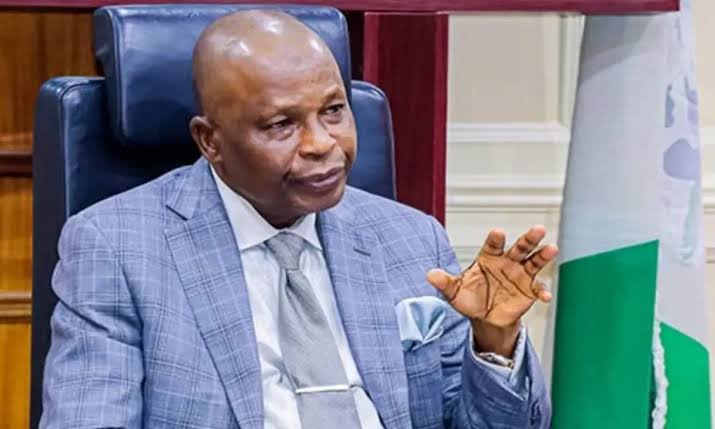
By Francesca Hangeior
The Attorney General of the Federation and Minister of Justice, AGF, Prince Lateef Fagbemi, SAN, has canvassed for greater efforts and commitments to the Federal Government’s aspirations to produce a workable legal framework for the country.
He charged the Committee put in place by the federal government to review, revise and consolidate the Laws of the Federation of Nigeria, LFN, to double the efforts and commitments to deliver on the mandate at the appointed time.
Fagbemi, a Senior Advocate of Nigeria, spoke on Monday in Abuja at the second retreat of the Committee put in place in October last year for the laws of the federation revision and reform.
The AGF while challenging the committee to be up and doing asked the members to remain united in purpose and steadfast in the resolve to produce a legal framework that is worthy of the nation’s aspirations.
He said the second retreat organized by the federal government was a strategic consolidation of the national law reform efforts and to provide an invaluable opportunity to come up with a better workable legal framework for the nation.
“Let me start by expressing gratitude to the Chairman, Co-Chairperson and members of the Committee for their selfless service and sacrifice, to ensure that this project is executed efficiently and effectively.
“The call to be part of this assignment is indeed a sacred that inevitably and positively affects the lives of individuals, government, businesses as well as citizens of this nation.
“The general purpose of law is to regulate human behavior by protecting lives and properties in society. The inauguration of the Committee on the 24th October, 2024 marked a historic milestone in our collective efforts to modernize, consolidate, and harmonize Nigeria’s body of federal statutes.
“The retreat successfully provides a clear framework for the structure and methodology of the revision exercise, oriented the 14 Working Groups tasked with reviewing specific legal subject areas, and fostered collaboration among key institutions and stakeholders on the project.
“Following the initial retreat, I wish to note that the Committee has recorded steady progress in its work.
“The Ministry has taken several measures to ensure that the assignment is delivered efficiently, including:training sessions for secretaries of the working groups to enhance documentation and coordination; technical meetings of the main committee and its various sub-committees; working sessions and deliberations among editors and reviewers; and ongoing technical collation of revised laws by the Secretariat.
“This second retreat is a strategic consolidation of our national law reform efforts and provides an invaluable opportunity to: review progress made since the first phase;
address any technical or structural challenges encountered during the collation process;
– Harmonize the output across working groups; and set the tone for the final stages of this important project.
“The next stage of the law review and consolidation process would include editing and proofreading the reviewed legislation, ahead of the final collation, production and printing of the laws of the federation.
“It is my conviction that these phases will be executed with even greater commitment by the Committee, with the support of stakeholders and development partners.
“I wish to commend the leadership of the LFN Committee, the Secretariat for its diligent coordination and day-to-day management as well as the Working Groups, Editors, and Reviewers, for their intellectual rigour and professionalism.
“Special gratitude to our development partners, particularly RoLAC, for standing firmly behind this national project.
“Let me urge all participants to use this retreat as a platform for robust engagement, peer learning, and practical collaboration.
“We must remain united in purpose and steadfast in our resolve to produce a legal framework that is worthy of our nation’s aspirations.
” I wish to express gratitude for your commitment to duty and I charge you to work in synergy and cooperation, in the overall interest of the nation”, the AGF said.
News
You must refund N300m, Rivers State tells NBA
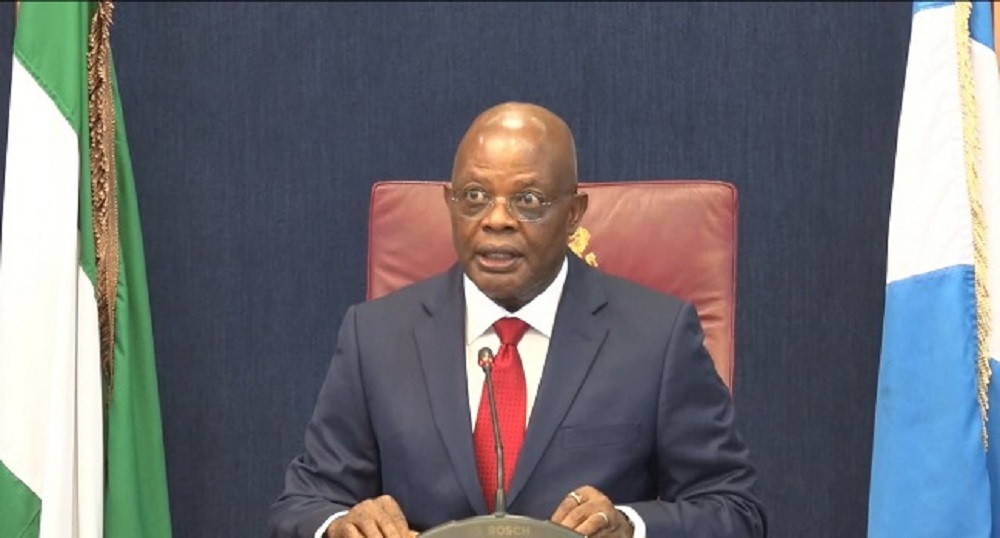
The Rivers State Sole Administrator, Vice Admiral Ibok-Ete Ibas (retd.), has replied to the Nigerian Bar Association regarding the reason for relocating its Annual General Conference from Port Harcourt to Enugu State.
Ibas faulted the reason cited by the NBA, describing it as misleading and uncharitable.
The Sole Administrator stated this in a statement issued in Port Harcourt on Monday by his media aide, Hector Igbikiowubo, and sent to newsmen.
He said while the NBA reserves the right to choose a venue for its conference, the association had yet to address the issue of the refund of the hosting rights paid by the state government for the conference.
The statement partly reads, “While we respect the NBA’s right to choose its conference venues, we find it curious that the association—despite its “principled position”— didn’t address the refund of the N300 million already paid by the Rivers State Government for the hosting rights of the 2025 conference.
“If the NBA truly stands on principle, it should demonstrate the same integrity by promptly returning these funds rather than benefiting from a state it now publicly discredits.”
It added, “The attention of the Rivers State Government has been drawn to the Nigeria Bar Association’s announcement dated 10th April 2025, relocating its 2025 Annual General Conference from Port Harcourt to Enugu.
The statement partly reads, “While we respect the NBA’s right to choose its conference venues, we find it curious that the association—despite its “principled position”— didn’t address the refund of the N300 million already paid by the Rivers State Government for the hosting rights of the 2025 conference.
“If the NBA truly stands on principle, it should demonstrate the same integrity by promptly returning these funds rather than benefiting from a state it now publicly discredits.”
It added, “The attention of the Rivers State Government has been drawn to the Nigeria Bar Association’s announcement dated 10th April 2025, relocating its 2025 Annual General Conference from Port Harcourt to Enugu.
News
FG extends contactless biometric passport to US, Mexico, Jamaica, Brazil

By Francesca Hangeior
The Federal Government has unveiled the second phase of its contactless biometric passport application system across its four missions in United States, Mexico, Jamaica and Brazil.
The Nigeria Immigration Service NIS disclosed this in a tweet on its ‘X’ handle signed by Service Spokesman, ACI AS Akinlabi.
The statement reads; “ain continuation of the phased Roll-Out of the Contactless Biometric Passport Application System across Nigerian Missions abroad, the Nigeria Immigration Service under its
Comptroller General, Kemi Nanna Nandap wishes to inform the General public especially Nigerians in the Diaspora that it is implementing the next stage of the roll-out across the following countries.
“The Application System, which is currently available on Google Play Store (NIS Mobile), is designed to allow Nigerians to renew their passports without visiting any Passport Centre for Biometrics enrollment. The Apple Store version will be onboarded shortly and an enhanced version of the NIS Mobile App for both Android and iOS users will be deployed to further improve users’ experience and accessibility.
“With this roll-out, the Service further informs the General public that the Contactless Passport App is now available in Canada, the USA, Mexico, Jamaica, Brazil, Europe, and Asia. It is yet to be rolled out in Australia and Nigeria, a future date will be announced for both countries in due course.
“The Service remains committed to innovative and efficient Service Delivery to Nigerians anywhere in the world”.
-

 News15 hours ago
News15 hours agoAutonomy: 774 LGs challenge FG, states in court Tuesday
-

 News8 hours ago
News8 hours agoRivers women rally in support of state of emergency
-

 News8 hours ago
News8 hours agoJust in: Namibia Moves to Deport Over 500 Americans in Bold Visa Policy Shift
-
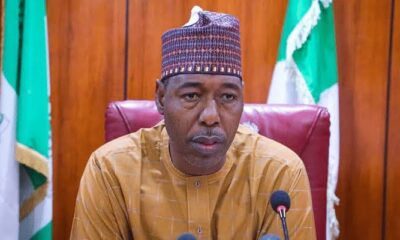
 News14 hours ago
News14 hours agoZulum orders arrest, offers house, scholarship to abused boy in viral video
-

 News3 hours ago
News3 hours agoYou must refund N300m, Rivers State tells NBA
-

 News16 hours ago
News16 hours agoNANS criticize NASS over proposed bill to fine, jail non voters
-

 News15 hours ago
News15 hours agoOluwo raises alarm over brewing Osun-Oyo border dispute
-
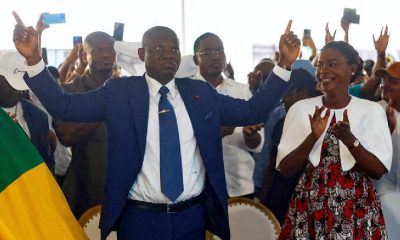
 Foreign15 hours ago
Foreign15 hours agoGabon military leader Nguema wins presidential election


















